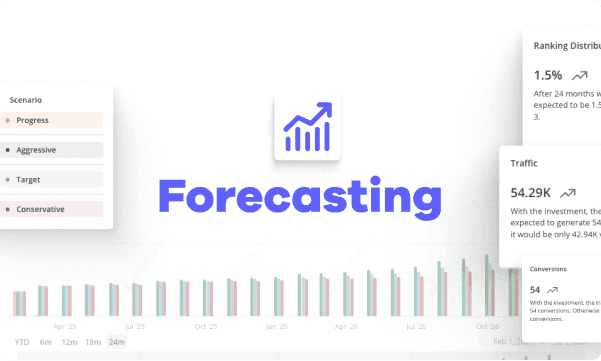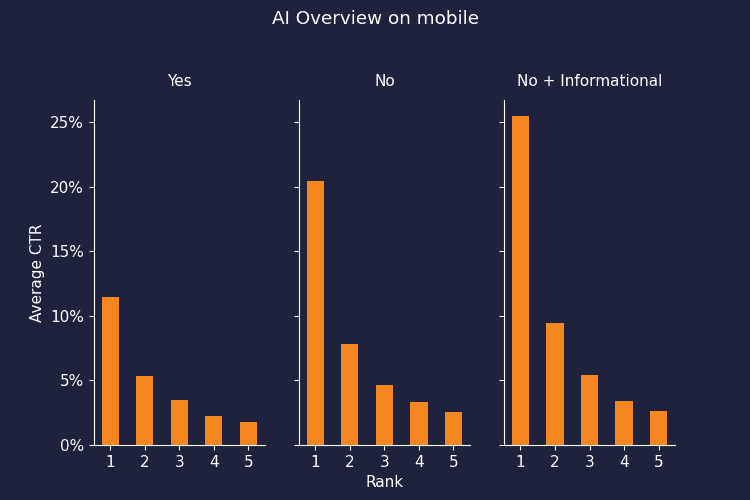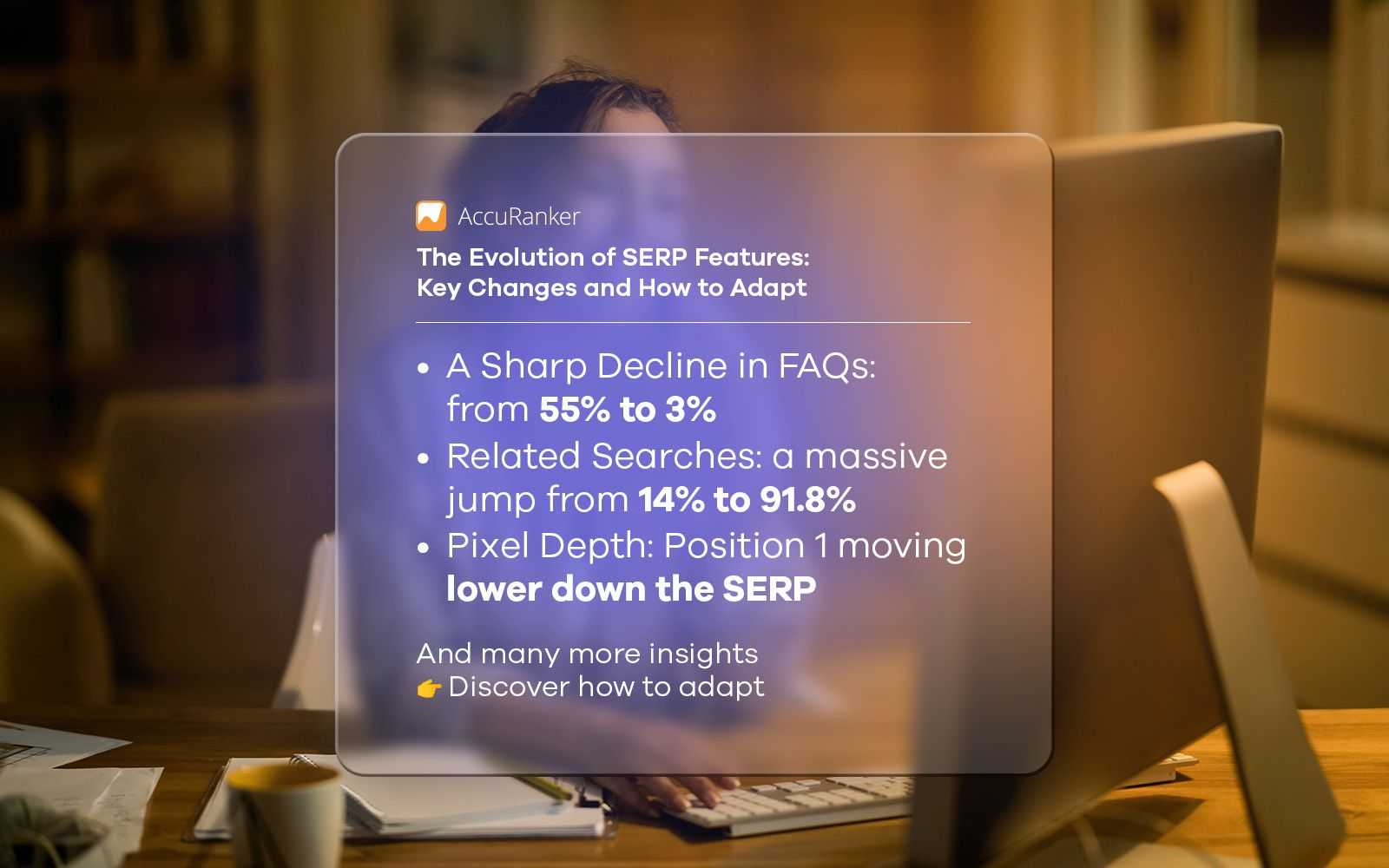A Beginner Guide To Track Search Engine Rankings For Your Website In 2024
Last updated on Friday, January 12, 2024

The era of starting a blog and going viral overnight, just by chance, likely ended around 2012. In 2024, creating compelling content is just as crucial as mastering the "behind-the-scenes" technicalities. Among these technicalities, keeping tabs on your website's search engine rankings is paramount for gauging its performance. In a world where over 7 million blogs are published daily, leaving your website's ranking to mere chance isn't a gamble you want to take.
As a beginner, tracking your website's search engine rankings might seem complex, right? Don't worry; in this blog, we will guide you on how to monitor your website's rankings effectively, even if you're just starting.
What Is Search Engine Ranking?
The Search Engine Ranking refers to the particular spot where a website appears upon searching with its focus keyword. The website pages that appear first have better ranking scores than those that appear below.
For example, when I searched for “best DSLR camera” on Google, the first result that appeared on Google had the highest search engine ranking score. Compared to the first one, the second result has a comparatively lower score, and so on.

How Does Google Search Engine Work?

Source: Semrush
With Google dominating over 91.61% of global searches, it’s important to know how the ins and outs of the platform work before you jump in. There are three fundamental strategies that you should consider to track search engine rankings on the Google search engine while positioning. They are:
Crawling
The first step in Google's search process is to crawl via web crawlers. These automated crawlers are responsible for searching the internet irrespective of demographics or channels. Once done, it adds the results to a list for further examination.
Indexing
The second step is known as indexing, where Google analyzes the listed results, including text and media, and stores them in its database. Remember that Google will only index the pages that have been crawled.
Algorithms
Last, based on your search query (keyword), Google's index (Google's database) and algorithms determine which results will appear. Here are the latest Google algorithms that play a key role in improving your search engine rankings:
BERT: BERT, Bidirectional Encoder Representations from Transformers, is Google’s AI language model that helps you understand the context behind your searches using NLP (Natural Language Processing) and NLU (Natural Language Understanding). Unlike Google’s previous algorithms, which couldn’t understand human context and prepositions, BERT can understand and give search results based on user intent.
Panda: The Panda algorithm, now a part of Google’s core algorithm since 2016, assigns a quality score to the web pages, which is later used as a ranking factor. Now, you can run regular site checks and identify content duplication, thin content, keyword stuffing, and more.
Hummingbird: With the Hummingbird algorithm, Google can better understand users' search queries and provide search results based on the user's intent. Unlike other algorithms, it doesn’t prioritize keywords but puts forth the user’s requirements with the help of synonyms, co-occurring terms, and latent semantic indexing.
Penguin: Google’s Penguin algorithm focuses on down-ranking websites by identifying spammy backlinks and over-optimized anchors. This algorithm has been brought in to put an end to practices like link purchasing and spammy link building.
Why Do You Need To Track Search Engine Rankings For Your Website?
If you want to track search engine rankings for your website but have some confusion - check out the benefits:
Helps to monitor your rankings: When you check out your rankings and assess the effectiveness of your SEO strategies, it allows you to make data-driven decisions.
Helps to understand your performance: It’s important to know where your website ranks and how well it is visible to visitors. The higher your ranking is, the more likely you will get organic traffic.
Helps to identify opportunities: Keywords are essential for your rankings and to ensure you can discover new opportunities for keyword insertions. Such research will be useful, especially when creating a content strategy.
Helps to measure marketing ROI: When you are investing in SEO for your business, you can measure return on investment by tracking search engine rankings.
What Is The Google Ranking Factor?
A Google Ranking Factor is the information and algorithms that Google uses to decide how well a web page is optimized to answer a specific search query.
For example, if you are searching for the term “Hootsuite alternatives,” Google will try to use its ranking factors, such as optimal length of the content, number of keywords, recent and updated content, and more, to decide which website will rank first.
E-E-A-T Framework of Google
Initially, Google was based on the E-A-T guidelines since 2014, where “E” meant “Expertise,” “A” meant “Authoritativeness,” and “T” stood for “Trustworthiness.” But, in 2022, Google added an extra “E” to its framework, “Experience.” While the initial “E-A-T” framework only focuses on ensuring that valuable and reliable information is shared on Google, the “E-E-A-T” framework prioritizes genuine and authoritative content with high trustworthiness to rank on Google.
Let’s say we have a keyword “how to make cheese pizza,” and two websites have ticked all the requirements of Google’s E-A-T guidelines. Now, to tick off that extra “E,” one website embeds its own YouTube video of making a cheese pizza in its website content. And voila! Its search engine ranking goes up because the video proves the content creator’s expertise and knowledge.
To fully understand how E-E-A-T works, you also need to understand the role of Google Quality Raters and what influences Search Quality Ratings.
What is a Google Quality Rater?
Google works with more than 16,000 external Search Quality Raters who provide ratings based on the guidelines representing real users and the information they are likely to need.
There are majorly two parts of the Search Quality Rating:
Page Quality
It is used to determine whether your page achieves its purpose. There are three steps in this process:
Determining the purpose of the page
Assessing the security metrics of the page
Deciding the rating of the page (Lowest, Low, Medium, High, Highest)
Needs Met
It determines whether your page fulfills the user requirements or user intent based on Google Search. There are two steps in this process:
Determining the user intent
Determining the rating of the page (N/A, FailsM, SM, MM, HM, FullyM)
Other Factors That Affect Your Search Engine Ranking
Other than the ones mentioned above, several factors are incorporated to determine your website’s ranking:
Search History
Google is always on the lookout for your search history and the activities you do online – including the websites you visit and even the places you go. By understanding your interests from your search history, Google tries to give you the best result that will suit your preferences.
Location
Google uses the location settings on your device to customize your search results based on its local SEO optimization metrics. For example, searching “best restaurants near me” will give you the results optimized for that keyword in your location. As your location changes, so will Google's results.
High Content Quality
For Google, content quality comes first. While SEO is important to rank on Google, according to the recent algorithms, content that is unique, helpful to users, and provides a lot of information on the relevant topic will have the potential to outrank its competitors.
Apart from that, a well-optimized content structure and optimal content length also serve as key ranking parameters for Google. So, make sure your content is divided into H2, H3, and H4 based on the information you share. Even though no ideal word count is suggested, it has been seen that content written between 1500 and 2000 words has a better chance of ranking in the first 10 results of Google.
Link Building
While this may sound new to you, link building plays a crucial role in ranking your content in the first 10 results of Google. Link building is the process by which other websites link to pages on your website to improve search engine rankings. The more high domain authority links you can get, the more your rankings will improve.
Discovering email addresses for outreach is vital in effective link building. An email finder tool streamlines the process by locating and verifying contact information, enhancing your outreach strategy. Building relationships through targeted emails can lead to valuable backlinks, boosting your website's domain authority and improving search engine rankings.
Steps to Track Your Search Engine Rankings
Here are the steps you can take to track your search engine rankings:
Step 1: List down your keywords
The first step of the process is to make a list of the keywords you have searched for in your niché. Go for keywords with a high search volume, relevance to your audience, and low competition so that you can have better scopes of ranking your website.
For example, maybe I want to target some keywords related to “marketing.”

Source: SearchVolume.com
Step 2: Choose a tool according to your requirements
In the second step, you need to choose a rank tracker tool that will suit your budget and your requirements. Wondering why? With an efficient rank tracker tool, you can preset keywords you want to rank for and get reports on your website’s positioning based on those keywords.
Here, I’m using Accuranker to do that. It gives me a detailed overview of the “Share of Voice,” “Average position,” “Traffic,” “SERP features,” and “Position.”

Source: AccuRanker Dashboard
The third step is all about analyzing the data you got from your rank-tracking tool. These insights can help you better understand your website’s strengths and weaknesses, help you identify the keywords presently working for you, and bring you the majority of traffic.
Unfortunately, search engine rankings do not remain static. They keep changing, and so does your website’s positioning. As you keep working towards improving your ranking - it’s important to note how and when your search engine rankings are changing.
Nothing is constant; tracking changes in your search engine rankings should be continuous. Keep experimenting with your strategies, new tools, and new keywords from time to time, and observe how these elements affect your website’s rankings.
Key Takeaways
With that, we have concluded our guide to track search engine rankings for your website in 2024. If implemented correctly, the steps and strategies we shared above can help you take your website’s performance to the next level. After all, tracking your website’s performance is more than just running behind numbers and positioning - it’s more about refining your SEO strategy and aligning it with your target audience.

Article by:
Sumeet Anand
Founder of Marveta
Sumeet Anand isn't just a B2B Content Marketing Expert; he's the visionary Founder of Marveta, where he's led countless B2B Tech and SaaS brands from humble beginnings to remarkable success. Celebrated for his outstanding content strategies, savvy B2B lead generation skills, and impressive results in inbound marketing, Sumeet stands out as a featured author on over 500 SaaS and major media publishing websites. His journey is not just about expertise; it's about crafting stories that resonate and connect with audiences on a personal level.


